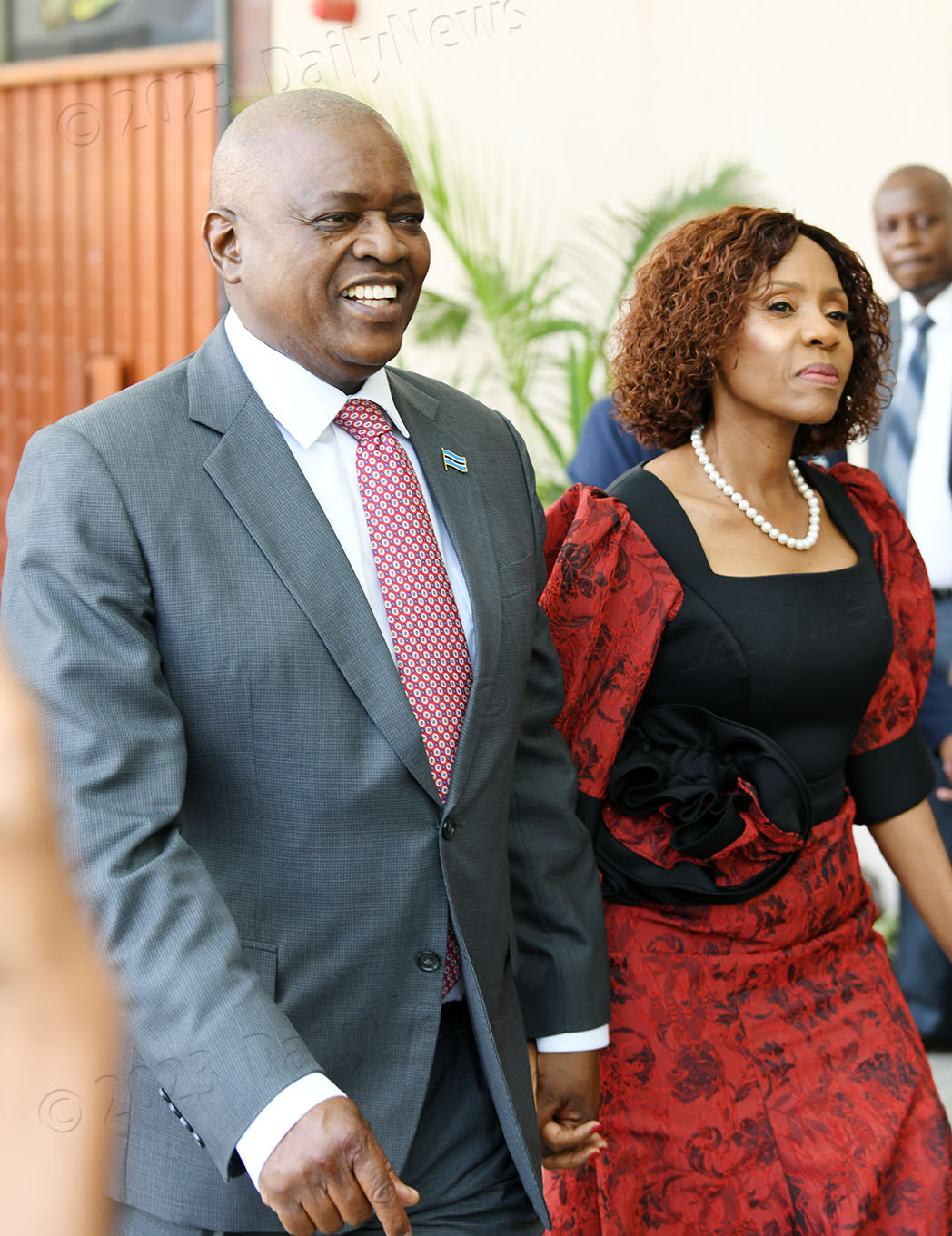Botswana still faces significant development challenge
04 Feb 2019
Botswana still faces significant development challenges.
These include sustaining positive economic growth rates, reducing unemployment and eradicating abject poverty, despite its developmental achievements over the past years. Minister of Finance and Economic Development, Mr Kenneth Matambo said with such challenges the focus of this year’s budget would be on consolidating development gains for further economic transformation.
Presenting the 2019/2020 Budget speech, Minister Matambo explained that the transformation of the country from upper middle-income to high-income status, as envisioned in Vision 2036, would be achieved through the consolidation of the development gains, and continuous reform of policies and streamlining processes to encourage innovative approaches to addressing challenges of service delivery throughout the country.
Addressing global economy, Minister Matambo said the global economy continued to be characterised by sluggish economic activities due to uncertainty in global markets.
He said as a result, the global economy was projected to grow by 3.5 per cent in 2019 and 3.6 per cent in 2020 as per the International Monetary Fund’s world economic outlook released in January.
He explained that the domestic economy on the other hand was forecast to grow by 4.5 per cent in 2018, 4.2 per cent in 2019 and 4.8 per cent in 2020.
He said the implication of the projected growth in the domestic economy was that less revenues would be realised, calling for continued expenditure control in order to ensure that the country remained on a path of fiscal sustainability in the medium term.
On developments achieved over the years, Mr Matambo explained that the development experience was not accidental, but rather as a result of a determined government, which pursued appropriate macroeconomic and structural policies amid challenges occasioned by domestic and external shocks to the economy.
He further explained that Botswana transformed dramatically over the years from being one of the poorest countries in the world to achieve the upper-middle income status to date because of the growth-promoting policies.
He said this resulted in the significant performance of the domestic economy, expansion of the economic and social infrastructure network, improved social indicators and the general standard of living.
Minister Matambo further explained that over the past years, domestic economic performance as measured by GDP growth rate averaged 10 per cent per annum between 1966 and 2008, before slowing down due to the financial crisis in 2008/2009.
He said real per capita income increased manifold from around US$7 in 1966 to the present level of over US$7 000, adding that the domestic economy also transformed from predominantly agriculture to mining based, but had since diversified towards all sectors in response to a mix of macroeconomic policies pursued by government.
Additionally, he explained that the country consolidated its fiscal position resulting in self-financing of its operating budget in 1972/1973 though it continued to depend on international donors to finance is development budget.
To date, he explained, donor aid had drastically reduced to around one per cent of the annual development budget, saying that significant strides were achieved with respect to control of inflation and employment creation over the years. He said average inflation declined from around 10 per cent between 1966 and 2010 to around four per cent in the past few years, while formal sector employment grew significantly from 29 000 persons in 1966 to 417 162 in September 2018.
Minister Matambo explained that those positive macroeconomic developments in turn contributed to government’s ability to generate sufficient resources to finance the network of economic and social infrastructure. He said public investment in the economic infrastructure such as roads network, power stations, dams and telecommunications had contributed to rapid growth experienced by the country over the years.
Similarly, he explained, there was significant investment on social infrastructure such as schools and health facilities over the years, resulting in increased literacy level from 34 per cent in 1981 to 87.1 per cent in 2016, while life expectancy at birth rose from 55.5 years in 1971 to 68 in 2011. Ends
Source : BOPA
Author : BOPA
Location : GABORONE
Event : Parliament
Date : 04 Feb 2019







